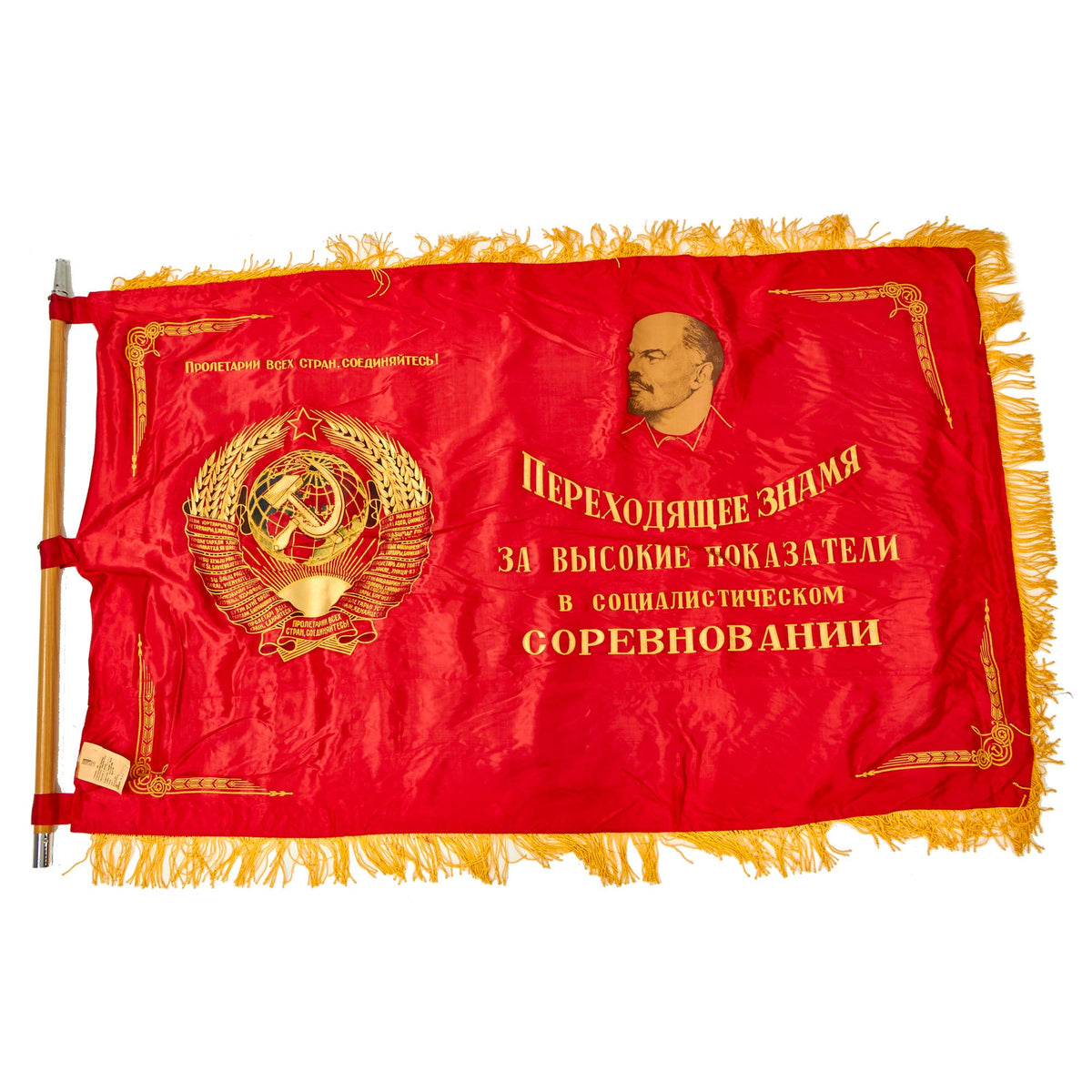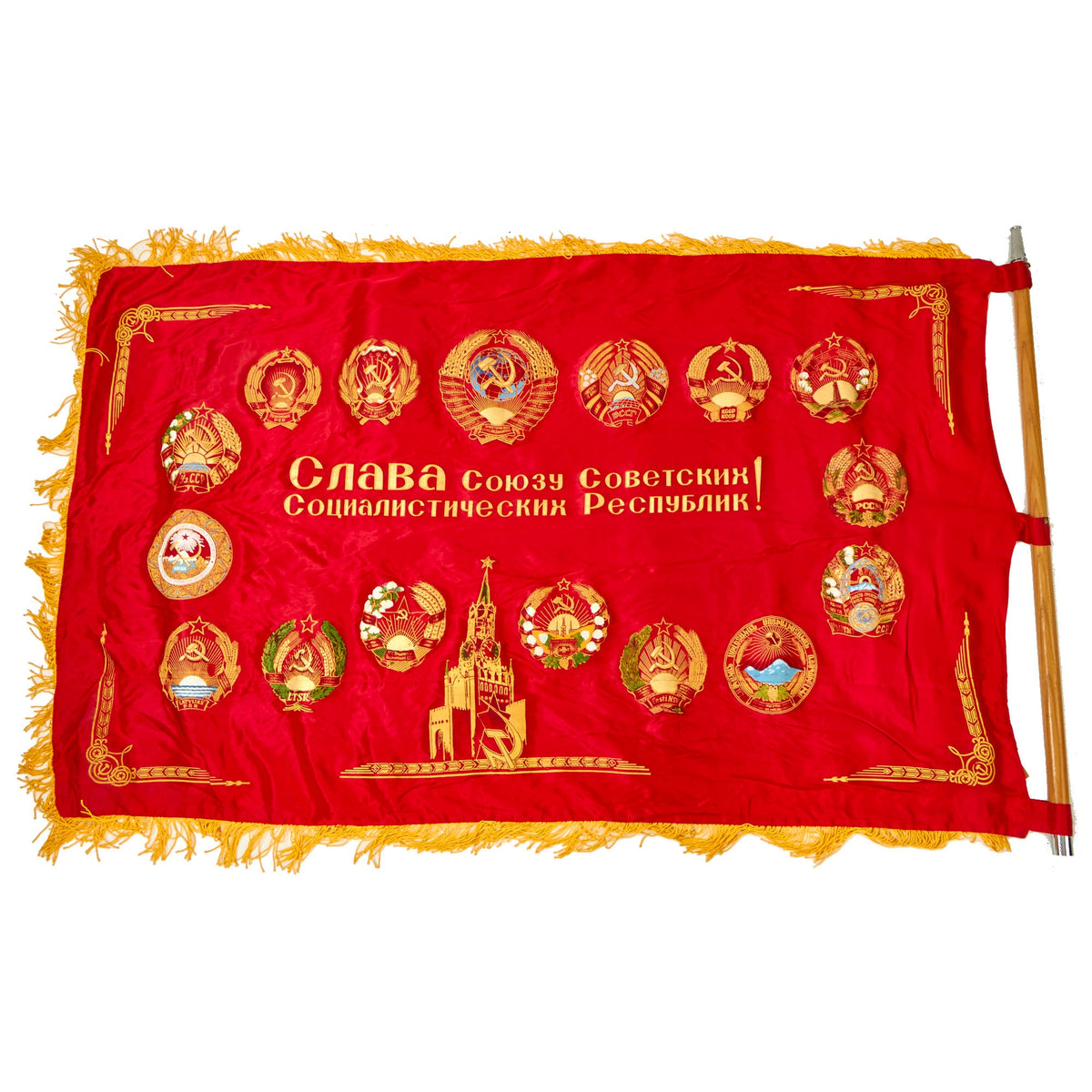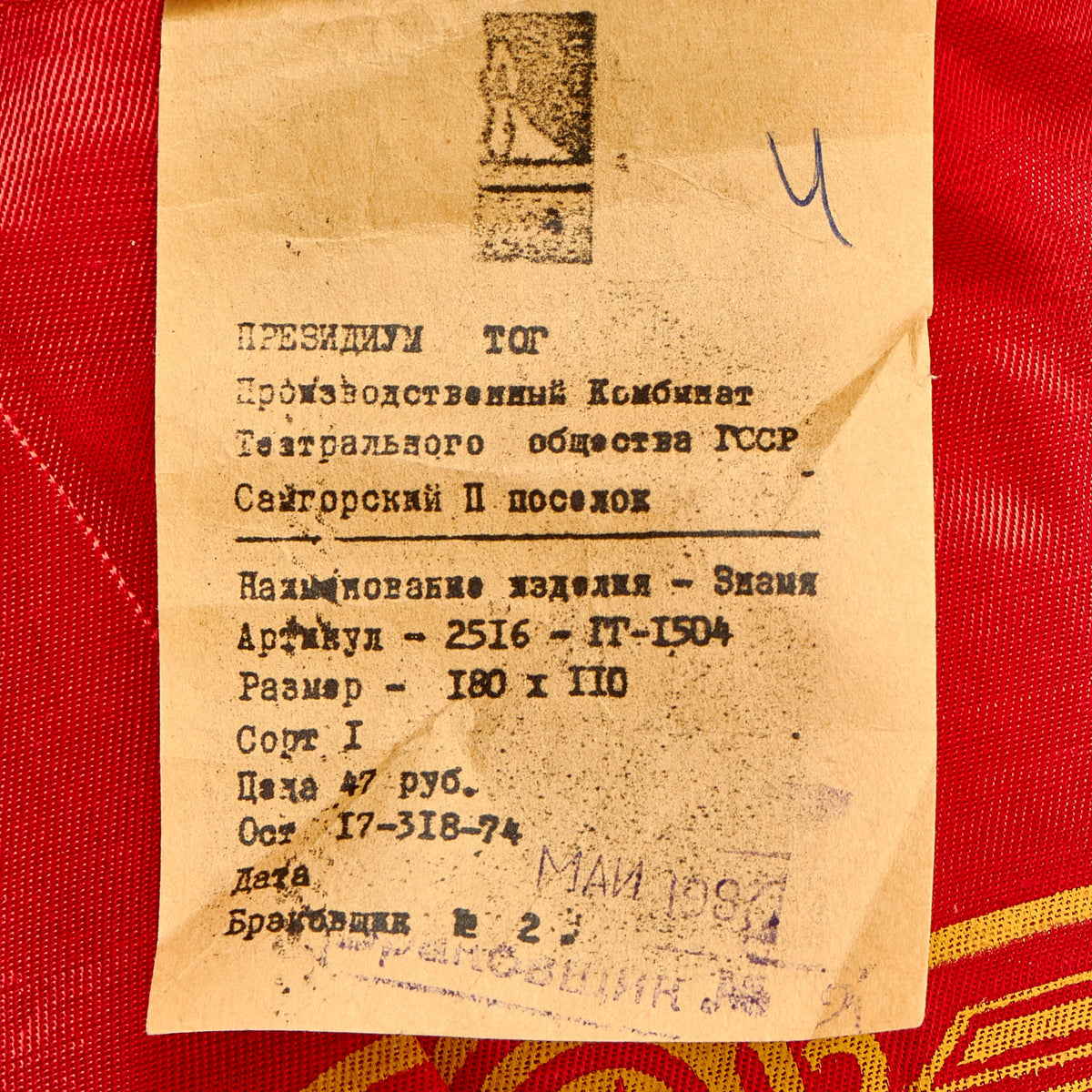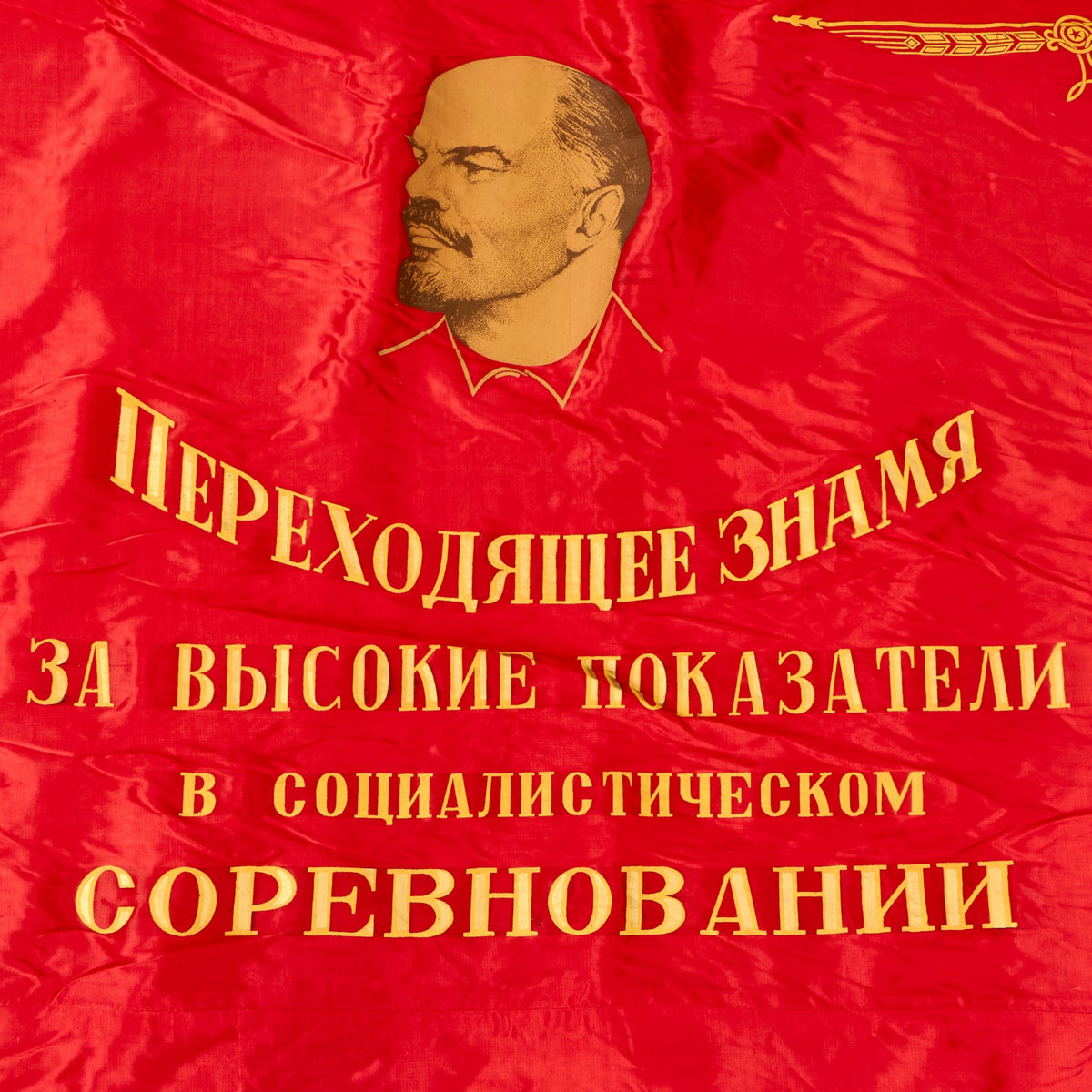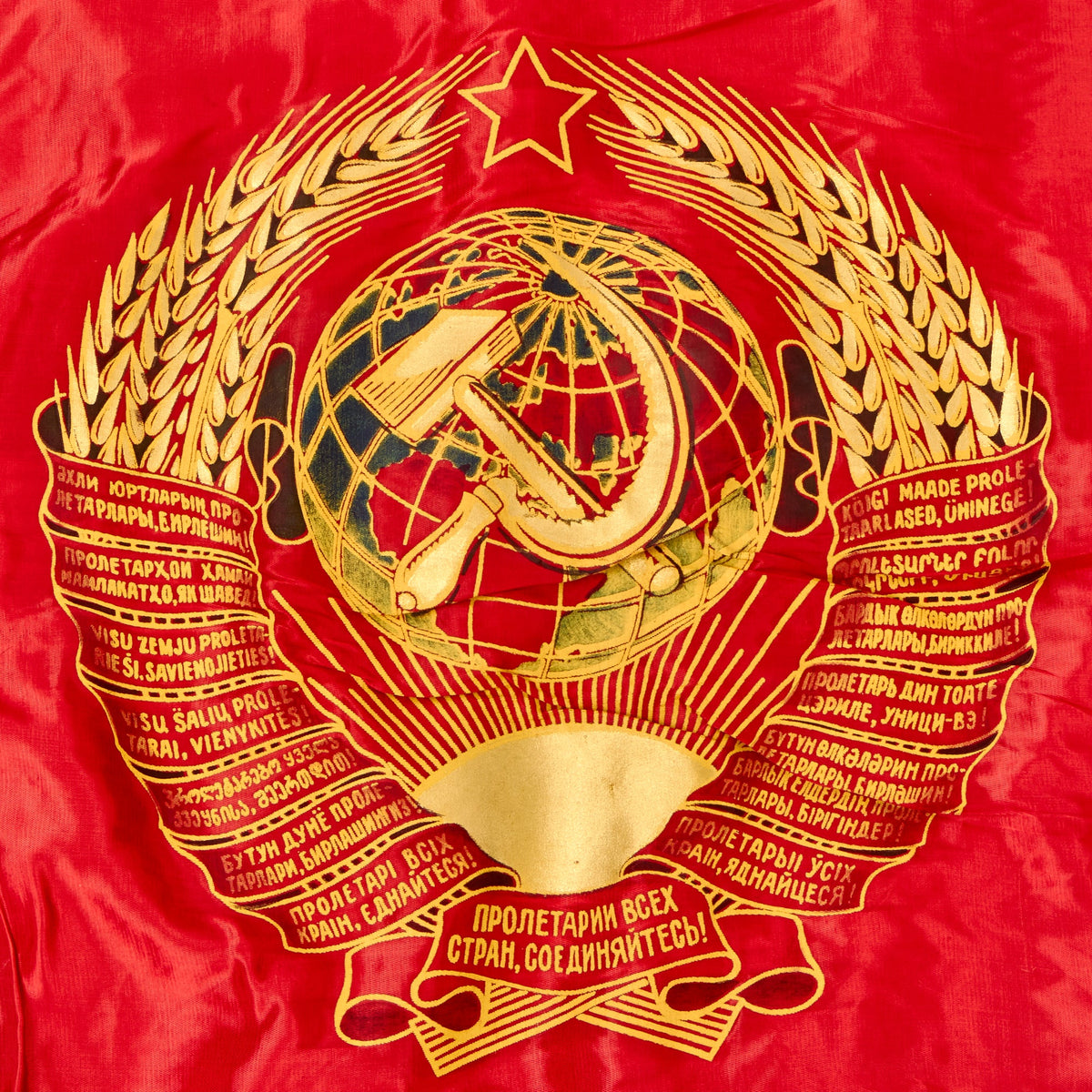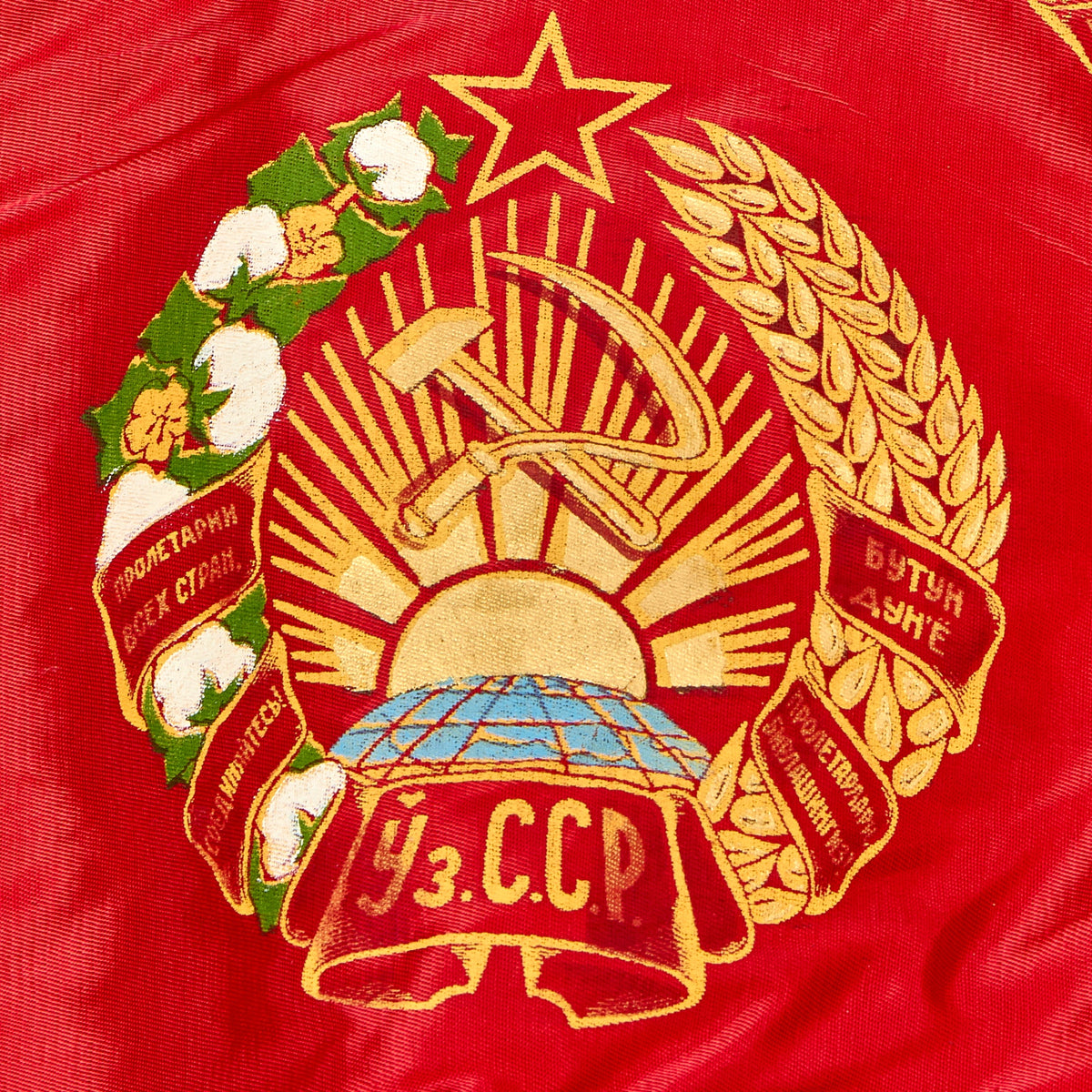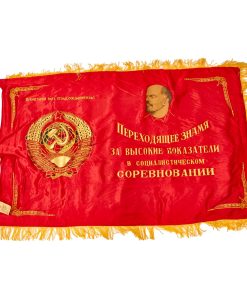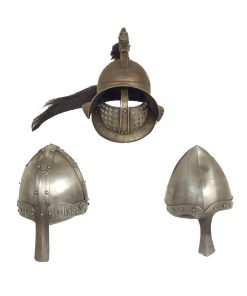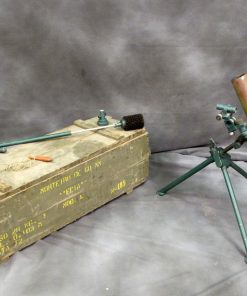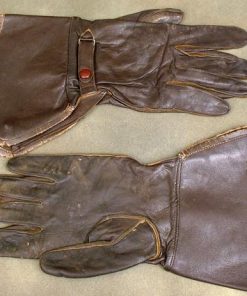Original Cold War Era Soviet Union Vladimir Lenin Socialist Competition Emulation Award Flag With Two Piece Pole – 71” x 43” Original Items
$ 895,00 $ 223,75
Original Item: Only One Available. . Vladimir Ilyich Ulyanov, better known as Vladimir Lenin, was a Russian revolutionary, politician, and political theorist. He served as the first and founding head of government of Soviet Russia from 1917 to 1924 and of the Soviet Union from 1922 to 1924. Under his administration, Russia, and later the Soviet Union, became a one-party socialist state governed by the Communist Party. Ideologically a Marxist, his developments to the ideology are called Leninism.
The flag is in wonderful condition with little to no evident wear. There is a label on the hoist side of the flag with a late 1980s date partially visible. The flag does come complete with the original two piece guidon style pole to be able to plant the flag in the soft earth.
Comes more than ready for further research and display.
Socialist competition or socialist emulation was a form of competition between state enterprises and between individuals practiced in the Soviet Union and in other Eastern bloc states.
Socialist emulation was nominally voluntary everywhere where people worked or served: in industry, in agriculture, in offices, institutions, schools, hospitals, army, etc. With the natural exception of the armed forces, committees of the trade unions were in charge of managing the socialist emulation.
An important component of socialist emulation was “socialist self-obligations”. Whilst the production plan was the major benchmark, employees and work collectives were supposed to put forth “socialist self-obligations” and even “enhanced socialist self-obligations” beyond the plan, both either as a collective or individually.
In Soviet practice, workers were however often underpaid, undernourished, and their sacrifice was the Party’s method of choice to “circumvent the technical inadequacy”.
Deadlines for tallying up the results of a socialist emulation were usually set at major socialist and communist holidays or notable dates, like the birthday of Vladimir Lenin or the anniversary of the October Revolution.
Winners were awarded both materially and morally. Material awards were money, goods, or perks specific to socialist systems, such as tickets to resorts, authorizations for a trip abroad, right to obtain a dwelling, or a car outside the main queue, etc. Moral awards were honorary diplomas, honorary badges, and/or putting winners’ portraits on the “Board of Honor”; work collectives were awarded with the “Transferable Red Banner of the Socialist Emulation Winner”. More prestigious was the nomination to state orders and medals for services rendered by individuals and by state enterprises.
Fast Shipping with Professional Packaging
Thanks to our longstanding association with UPS FedEx DHL, and other major international carriers, we are able to provide a range of shipping options. Our warehouse staff is expertly trained and will wrap your products according to our exact and precise specifications. Prior to shipping, your goods will be thoroughly examined and securely secured. We ship to thousands clients each day across multiple countries. This shows how we're dedicated to be the largest retailer on the internet. Warehouses and distribution centres can be located throughout Europe as well as the USA.
Note: Orders with more than one item will be assigned a processing date depending on the item.
Before shipping before shipping, we'll conduct a thorough inspection of the items you have ordered. Today, the majority of orders will be delivered within 48 hours. The delivery time will be between 3-7 days.
Returns
The stock is dynamic and we cannot completely manage it because multiple stakeholders are involved, including our factory and warehouse. So the actual stock may alter at any time. It's possible that you may not receive your order once the order has been made.
Our policy is valid for a period of 30 days. If you don't receive the product within 30 days, we are not able to issue a refund or an exchange.
You can only return an item if it is unused and in the same state as the day you received it. You must have the item in its original packaging.
Related products
Uncategorized
Uncategorized
Uncategorized
Uncategorized
Band of Brothers ORIGINAL GERMAN WWII Le. F.H. 18 10.5cm ARTILLERY PIECE Original Items
Uncategorized
Uncategorized
Uncategorized
Uncategorized
Uncategorized
Uncategorized
Uncategorized
Uncategorized
Uncategorized
Uncategorized
Armoured Fighting Vehicles of the World: AFVs of World War One (Hardcover Book) New Made Items
Uncategorized
Australian WWII Owen MK1 Machine Carbine SMG Custom Fabricated Replica with Sling Original Items
